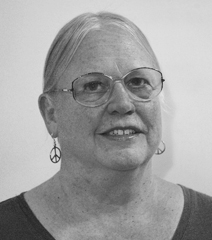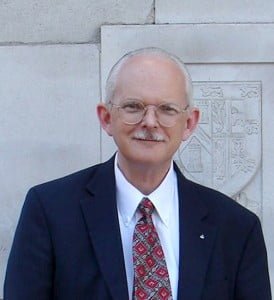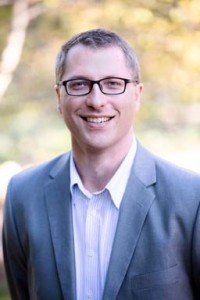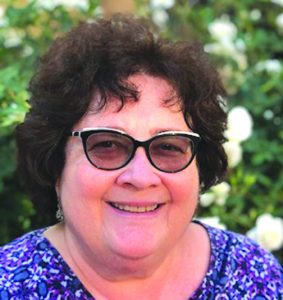Question: I grew up in the 1950s in a small town where I felt safe. Now, these many years later, I don’t feel safe because there is a barrage of mass shootings. I’m having a difficult time wrapping my mind around the statistics just since the beginning of this year. I looked up statistics and, in the 1950s, there were three mass shootings, eight people dead and five injured. There was one shooting in 1954/five injured. The others were 1959 and four dead in each shooting.
This year’s statistics are staggering and we’re not even six months into the year – 11 shootings, 67 dead and 42 injured. My question is what do you think is behind the rise of these shootings? Is there something that we, as ordinary citizens, can do to help stop this madness?
~ Concerned Senior Citizen
Dear Concerned Senior Citizen,
I too have been concerned about the growing number of mass shootings in our nation. I think there are several causes. Society has been militarized in the name of defense. We spend a higher percentage of our gross domestic product on the military than other industrialized nations. It implies we think violence is a good problem solver despite our lack of success in our many actions around the world.
Our consumerism plays a role, too. The excessive consumption of goods and services doesn’t seem to make many happy or give them peace of mind. The NRA pushes fear to make more profits without regard to the lives lost via the products produced by their member corporations. Hate radio stirs up resentment and makes some feel they are victims of other groups of Americans. This seems to affect men more because 96% of mass shooters from 1982 to the present have been male, per statista.com. There is more diversity in ethnicity of the mass killers but the majority, 66%, identify as White. I think many White male Americans have a false sense of superiority and turn to violence when they feel threatened.
There are many things ordinary people can do to combat this rage and murder. We can contact public and private education officials and urge more emphasis on critical thinking skills and non-violent problem solving techniques. We can model consensus building rather than a “winner take all” philosophy of life. Concerned citizens can demand better mental health services to help people deal with their anger, resentment and fear.
Most importantly, we can support sensible gun legislation such as universal background checks, waiting periods and limits on high capacity magazines. Groups to contact for more information are: Prevention Institute (preventioninstitute.org), Wear Orange (wearorange.org), and Students Demand Action (studentsdemandaction.org) (there is a chapter at CVHS).

Sharon Weisman
sharon@jetcafe.org
Dear Concerned Senior Citizen,
What is causing this? That’s a simple question for a complex malady with no simple answer. I can only offer my perspective in hope of a clearer understanding that is helpful in pointing to potential solutions.
As a Religious Science practitioner, we are trained and dedicated to healing and the relief of suffering both physical and spiritual. I was shocked after I first began my practitioner ministry to realize firsthand that most illness and suffering I was encountering in my clients, from cancer to alcoholism, even racism and most behavioral issues, were somehow rooted in self-hatred and a lack of self-worth. I have seen firsthand how corrosive self-hatred is to individuals, families and, yes, even societies. It is not an easy thing to cure, either, because it often entails giving up beliefs we have used to define ourselves. Nor is it an easy thing for some people to self-manage, and they do so in varying degrees with varying success. The problem is when self-hatred becomes so destructive, people turn it inward and become overwhelmed to the point of sickness or suicide; or they turn the self-anger and rage outward, and take up a gun and harm others. The problem with self-hatred is that it is “self-kept” as a hidden disease that can mask itself well, until the undeniable symptoms appear.
So, what is to be done? Dr. Ernest Holmes, the founder of the Science of Mind, once pointed out that the explanation is the cure. Here is my take on an explanation, and I emphasize that it is only my take.
All of us are born into ignorance. In my opinion, ignorance is the real “original sin” humanity suffers from. Indeed, no one, because of our ignorance, gets through life without messing up at some point. All the anger we see directed at ourselves or others for being less than perfect is rooted in fear, which itself is the result of ignorance. Now the question is, just what are we ultimately ignorant of?
Each of us is an individualized finite manifestation of the Infinite at play in its own creation. To put it another way: God is at play in His own creation as us. The one became the many. We are the divine manifesting in its own dynamic and every-changing creation. As such, we are of enormous importance and value but we don’t see it (much less believe it); but Jesus did, and quite clearly. He also fully understood the limitations we are subjected to that are necessary for creation to occur, which is why He was so keen to point out that at any given moment, God’s forgiveness is ours, waiting only for our acceptance. To see ourselves as someone God hates and punishes is not only untrue, but too cruel to bear. To believe we are unacceptable to a God who judges and condemns us for imperfections and limitations we had no hand in creating is itself a result of ignorance. Indeed, as Ernest Holmes once pointed out, evil is not a thing, or power, or an entity in and of itself. The evil we experience is all the result of ignorance. We are not evil beings; we are ignorant beings that can create pain and suffering as a result of that ignorance.
Which is why Jesus always said the Father, who is all-knowing and all-understanding, is not a condemning, judgmental God, but rather is a God of love, of mercy, grace and infinite-unending forgiveness, acceptance and pardon. The true nature of God is one of acceptance and not rejection. For how could God reject and condemn what is of its own self, or the result of its own hand?
Where there is love and acceptance for oneself and for others, where there is a self-forgiveness and a forgiveness of others, where there is the recognition of what it is to be human with all its seeming limitations, along with empathy and compassion for oneself and for others, there is no need for guns.
So how do we change it? The Zen Buddhists have a saying: “If you do not get it from yourself, where will you go for it?” The Catholic lay ministry of the Christophers has a similar saying. Namely, “It is better to light one candle than to curse the darkness.” In Centers for Spiritual Living, weekly we sing a hymn that begins and ends with “let there be peace on earth and let it begin with me.” In short, become the healing you wish to see in the world. Even if it is nothing more than a changed awareness on one’s own part, that awareness itself ripples its goodness out into the world and helps to uplift and bless all of creation.

Anthony Kelson, Religious Science Practitioner
anthony@apkelson.com
Question: I just found out a close friend has died. We didn’t stay in touch much over the last year because of restrictions. Even though we did not have our weekly lunches like we normally had done, we still talked at least twice a week on the phone. For the past two weeks, I called and called and left a message each time I called. Finally, her daughter called and said she had passed away in a local hospital two weeks ago from a heart attack. I feel so helpless that I couldn’t speak to her before she died, perhaps offering words of comfort. Quite frankly, I’m devastated. She was like a sister to me.
Please say something about family letting friends know when a family member is ill or dying. I know they knew about me because I was invited to many of their family functions. ~Heartbroken Friend
Dear Heartbroken Friend,
I am sorry for the loss of your friend. News like that often comes so suddenly, forcing us back and into the memory of our last interaction. Were we kind and comforting? Could they sense the love we have for them? Did they overlook any wrongs we may have done? Most people, like you, long for one more conversation, one more moment together.
As a pastor, I am often in the line of connections when a loved one has passed. Arrangements must be made. And I often ask the family to provide a sense of who has been lost – favorite hymns or Scripture or hobbies. Most people are not prepared to share what seems to be simple answers, not because they are not thoughtful or aware of the answer, but because grief clouds our hearts in a way that obscures almost everything in our mind.
Honestly, I know that the only reason I am contacted is because I am on the to-do list given by the funeral home or I am looked to in order to help bear the burden of sudden grief. Few people have such responsibility in our friendship circles. In fact, when I have experienced sudden loss, I must admit that the last thing on my mind was notifying anyone but the closest of family, those who could grieve with me at my most vulnerable. Otherwise, a statement on social media or an obituary in the local newspaper would have to suffice.
In the death of loved ones, we often reflect on what should have been different, how we might have changed an interaction with them. What we need in these moments is grace – grace to realize that love overcomes our mistakes. Grief often robs us of grace as we turn inward (rightfully) in our loss.
But as we try to discover grace for ourselves, those who are grieving near us must also be given grace. They, too, have turned inward. I imagine that, being so close of a friend as you were, the family did not intentionally withhold the sad news. You were overlooked because the magnitude of their grief clouded everything else. How might you shine a beacon of hope to them, of understanding and grace, reflecting the love you shared with those who have been left behind?

kylesears@lacanadachurch.org
Dear Heartbroken Friend,
Of course you are devastated. You were very close with this woman. You say that you didn’t stay in touch much, yet you spoke on the phone at least two times a week. When someone is that regular a presence in your life she is a part of the rhythm of your week. She is in your thoughts.
All kinds of thoughts must have gone through your mind during the two weeks you called and didn’t hear from her. You must have felt many feelings during that time. Then you came to know what had happened. You had lost your friend.
Of course I do not know the exact order of events that your friend went through. It sounds as though it was a severe heart attack and sudden. You know, no one is allowed to visit someone in the hospital. In some cases, one person, usually a family member, is allowed. You probably wouldn’t have been allowed to visit her. I mention this because it would have even been unlikely that you would have been able to talk on the phone with her. Even though you wish you could have talked to her and offered words of comfort, she likely wouldn’t even have been able to speak with you.
I really do not know the accessibility her daughter had to your friend’s phone messages or even how devastated she was during those two weeks after her loss. However, we really can’t judge her for not calling. As sad as it was for you, it was about your friend and the end of her life.
Recently, I lost a friend who was very dear to me. I felt very unfinished because I did not get to see her after the pandemic. We didn’t talk regularly on the phone because previously we had seen each in person at least two times a month. It was such a pleasure to have her in my life. She was so dear to me. I miss her.
I hope in time you will reconcile with the events that have occurred. Perhaps writing a letter to your dear friend and saying all you had left to say would help. I know it will bring you some peace.

Rabbi Janet Bieber
jbieber1155@aol.com
